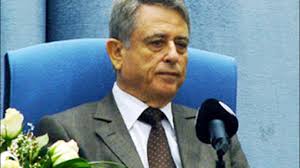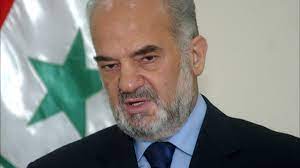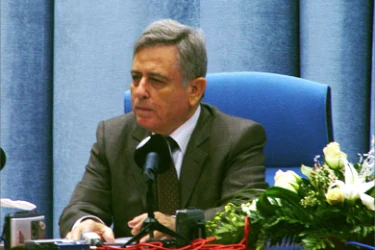The Syrian Vice President delivered severe criticism of the Arab situation, which has reached the lowest levels of decline. He said that “the national sentiment and the national responsibility among Arabs have regressed below zero.” He added, “There is no option for Arabs but their unity, changing their concepts, and formulating a new approach to Arab joint action because in today’s world, there is no place for anyone without power.
He said that under the backdrop of polarized unipolarity, the world is heading towards a war targeting both the Arab and Islamic worlds… The suffering of Iraq from the war and its future consequences are the most dangerous challenges Arabs will face in the coming years, more dangerous than anything they have encountered in the past.” He said, “The world is in an unidentified identity war of time and place, imposed on the Arab and Islamic worlds.”
The Syrian Vice President criticized the call for a grand Middle East and reform in the Arab world, saying that the required reform should emerge from within, noting that external interests impose such a call. However, he emphasized the need for changes in Arab concepts and orientations. “If that doesn’t happen, matters won’t be in favor of any of us,” he said. He stated that development is an urgent need for every citizen and every state in the region. He warned that Israel has hindered the nation’s progress.
He warned that “if there is no comprehensive Arab review of the situation, extremism will grow, along with feelings of frustration, departure, and violence.”
Khaddam said that the Arab clock has stopped for long centuries, “and we must deal according to what prevailed in those times.”
He added that the region stretching from the Mediterranean Sea to China and Russia in the East will be the most targeted in the upcoming stage.
Khaddam believes that the Arab League was not established with the aim of launching an Arab project that culminates in Arab unity, but rather it was established between states of doubt and fear sown among them. He said that the current Arab situation will not remain the same, and Arabs must seek to review their political system to build a modern state, develop themselves, and change their concepts to enhance their interests and achieve their goals and solidarity.
In an interview with “Al-Hayat” newspaper, the Syrian Vice President emphasized that Damascus’ offer for peace is based on “resuming negotiations according to international legitimacy and from the point reached.” He said, “Israeli rejection is expected since Israel has closed the doors to peace since its establishment, so we’re not surprised.”
Khaddam said that any meeting between President Bashar al-Assad and Israeli Prime Minister Ariel Sharon “is unlikely, as the issue is not about a meeting but about whether Israel wants peace or not.”
The Syrian official’s statements came during his visit to Qatar yesterday, during which he said, “All previous facts, whether with Syria or with Palestinians, confirm that Israel places obstacles, and every time a topic is discussed at a certain stage, it attempts to create obstacles in front of this topic, so we do not believe that it has any intention for peace.”
On another note, Khaddam welcomed the visit of the President of the Palestine Liberation Organization, Mahmoud Abbas, to Damascus. He said that it comes “within the framework of the relations between Syria and the Liberation Organization, which have not been severed. We welcome brother Abu Mazen; he spent a long period in Syria, and now he is the President of the Liberation Organization. We will welcome him and wish him success in achieving the aspirations of the Palestinian people.”



